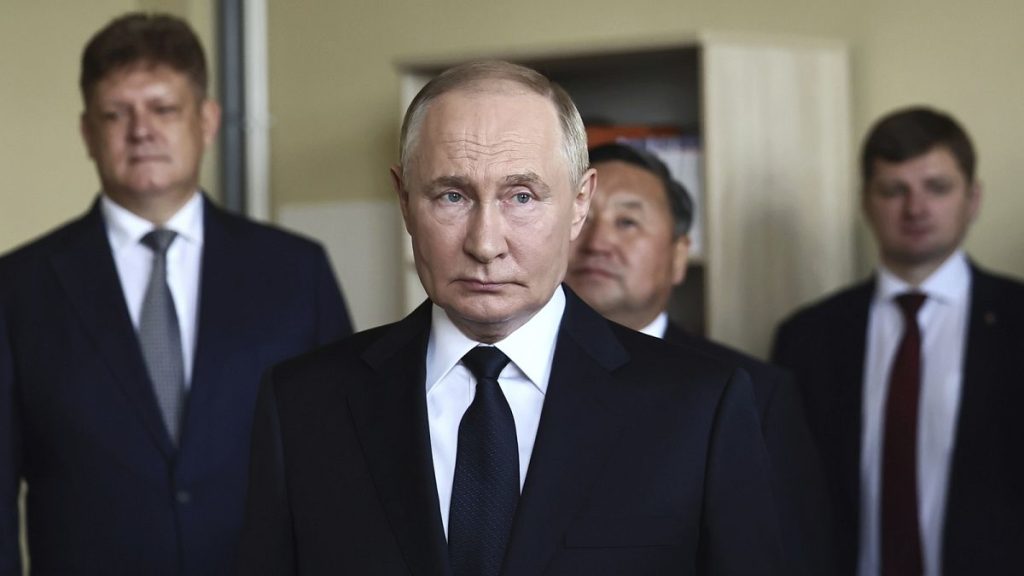Vladimir Putin is facing accusations of orchestrating the unlawful deportation and transfer of Ukrainian children to Russia, leading to the European Commission calling on Mongolia to fulfill its obligations to the International Criminal Court (ICC) and place him under arrest during his ongoing visit to the country. The EU supports the ICC’s investigation in Ukraine and expects cooperation from all state parties. Putin’s visit to Mongolia is the first time he has traveled to an ICC party since an arrest warrant was issued against him for war crimes in Ukraine, with a previous trip to South Africa being canceled due to international outcry. The Kremlin has dismissed the charges against Putin and one of his deputies as “outrageous and unacceptable,” stating that the ICC decision is “legally void” as Russia is not a party to the Rome Statute.
Despite Russia’s lack of ICC affiliation, Mongolia is a state party and is expected to comply with arrest warrants issued by the court. The ICC lacks enforcement capabilities and relies on state parties to carry out arrests of suspects who set foot on their soil. While Mongolia has not indicated whether it will fulfill this request during Putin’s visit, the high-profile trip was organized at the invitation of Mongolian President Ukhnaagiin Khürelsükh, and official talks between the heads of state are anticipated. The Kremlin’s spokesperson, Dmitry Peskov, expressed confidence in the visit, stating, “We have a wonderful dialogue with our friends from Mongolia.”
The ICC did not immediately provide a response regarding Putin’s visit to Mongolia, but last week, a spokesperson reminded the country of its obligations under the Rome Statute. In the event of non-cooperation, ICC judges can issue findings and inform the Assembly of States Parties, which can take appropriate measures. Human Rights Watch has also called on Mongolia to either deny entry to Putin or place him under arrest, emphasizing the importance of holding all individuals accountable for their actions, regardless of their power or status. Mongolia was among the 94 countries that signed a joint statement in support of the ICC after Prosecutor Karim Khan faced criticism for seeking arrest warrants against Israeli officials and Hamas leaders, showcasing a commitment to upholding international justice standards.
The accusations against Putin and his deputy regarding the deportation of Ukrainian children have sparked international concern, with calls for accountability and adherence to the rule of law. The European Commission’s plea to Mongolia reflects a broader push for cooperation among ICC state parties to ensure that individuals facing arrest warrants are held accountable for their actions. The ongoing debate highlights the complexities of enforcing international justice standards and the challenge of balancing diplomatic relations with the pursuit of justice. Despite differing perspectives on the ICC’s authority and the validity of arrest warrants, the importance of upholding human rights and holding perpetrators accountable remains a central issue in global efforts to address war crimes and violations of international law.
As Mongolia weighs its response to the situation involving Putin and the ICC arrest warrant, the country is placed at a crossroads between diplomatic relations and international obligations. The decision whether to take action against Putin during his visit will have implications for Mongolia’s reputation as a state party to the Rome Statute and its commitment to upholding the principles of justice and accountability. The outcomes of this high-profile visit and the response of Mongolian authorities to the calls for Putin’s arrest will likely have broader implications for international efforts to address human rights violations and hold individuals accountable for their actions. The controversy surrounding Putin’s visit to Mongolia underscores the complexities of navigating international relations while upholding standards of justice and the rule of law in the face of alleged war crimes and human rights abuses.


